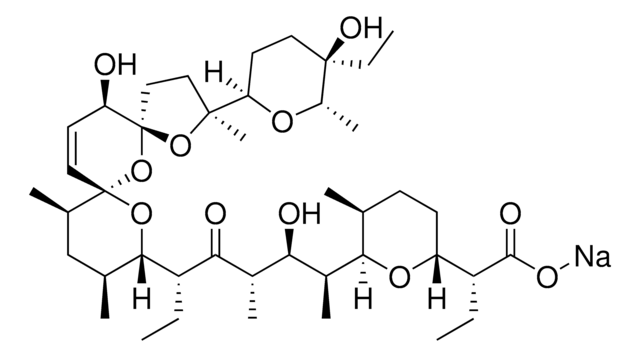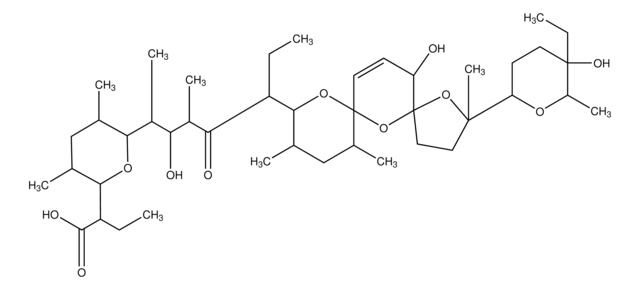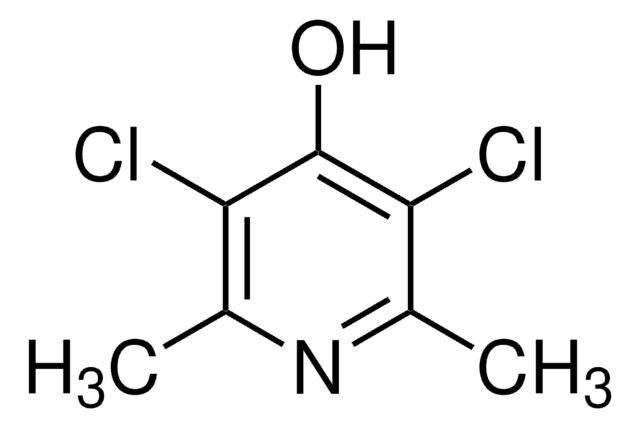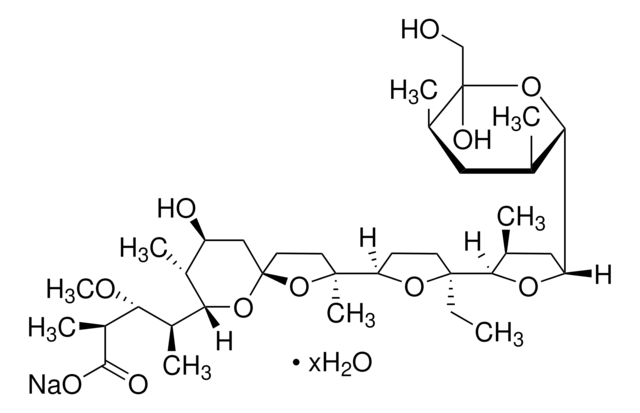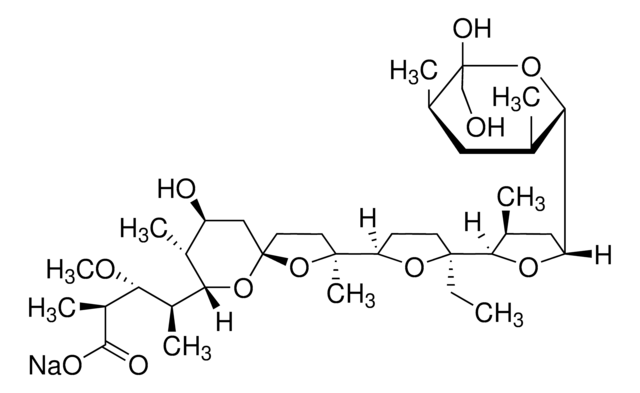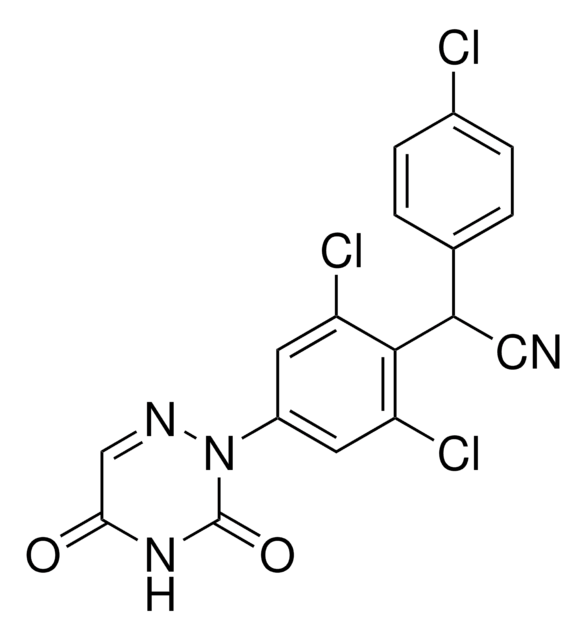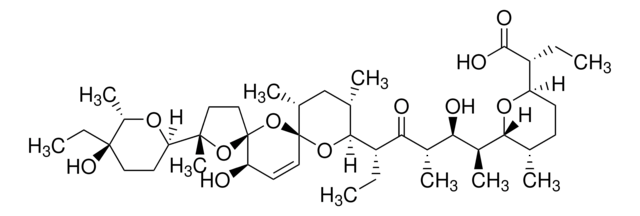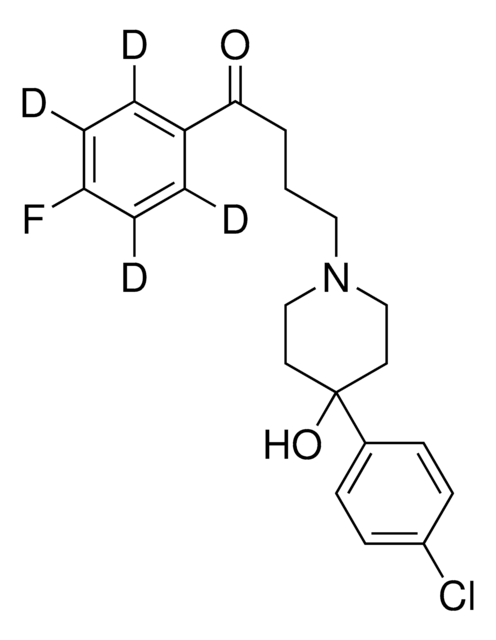34069
Maduramicin ammonium
VETRANAL®, analytical standard
Synonym(s):
Maduramycin ammonium
About This Item
Recommended Products
grade
analytical standard
Quality Level
product line
VETRANAL®
shelf life
limited shelf life, expiry date on the label
technique(s)
HPLC: suitable
gas chromatography (GC): suitable
application(s)
forensics and toxicology
pharmaceutical (small molecule)
format
neat
SMILES string
[NH4+].[H][C@@]1(C[C@H](O[C@@H]2C[C@H](OC)[C@@H](OC)[C@H](C)O2)[C@@]([H])(O1)[C@]3(C)CC[C@@]([H])(O3)[C@]4(C)CC[C@]5(C[C@H](O)[C@@H](C)[C@]([H])(O5)[C@@H](C)[C@]6([H])O[C@](O)(CC([O-])=O)[C@@H](C)[C@H](OC)[C@H]6OC)O4)[C@@]7([H])O[C@](C)(O)[C@H](C)C[C@@H]7C
InChI
1S/C47H80O17.H3N/c1-23-18-24(2)45(9,51)61-36(23)31-19-32(58-35-20-30(53-10)40(55-12)28(6)57-35)42(59-31)44(8)15-14-33(60-44)43(7)16-17-46(64-43)21-29(48)25(3)37(62-46)26(4)38-41(56-13)39(54-11)27(5)47(52,63-38)22-34(49)50;/h23-33,35-42,48,51-52H,14-22H2,1-13H3,(H,49,50);1H3/t23-,24+,25+,26+,27-,28-,29-,30-,31+,32-,33+,35+,36-,37-,38-,39-,40-,41-,42+,43-,44-,45-,46+,47+;/m0./s1
InChI key
WQGJEAMPBSZCIF-HKSLRPGUSA-N
Looking for similar products? Visit Product Comparison Guide
General description
Application
Legal Information
Not finding the right product?
Try our Product Selector Tool.
Signal Word
Danger
Hazard Statements
Precautionary Statements
Hazard Classifications
Acute Tox. 1 Dermal - Acute Tox. 2 Oral - Eye Irrit. 2
Storage Class Code
6.1A - Combustible acute toxic Cat. 1 and 2 / very toxic hazardous materials
WGK
WGK 3
Flash Point(F)
Not applicable
Flash Point(C)
Not applicable
Personal Protective Equipment
Choose from one of the most recent versions:
Certificates of Analysis (COA)
Don't see the Right Version?
If you require a particular version, you can look up a specific certificate by the Lot or Batch number.
Already Own This Product?
Find documentation for the products that you have recently purchased in the Document Library.
Customers Also Viewed
Our team of scientists has experience in all areas of research including Life Science, Material Science, Chemical Synthesis, Chromatography, Analytical and many others.
Contact Technical Service